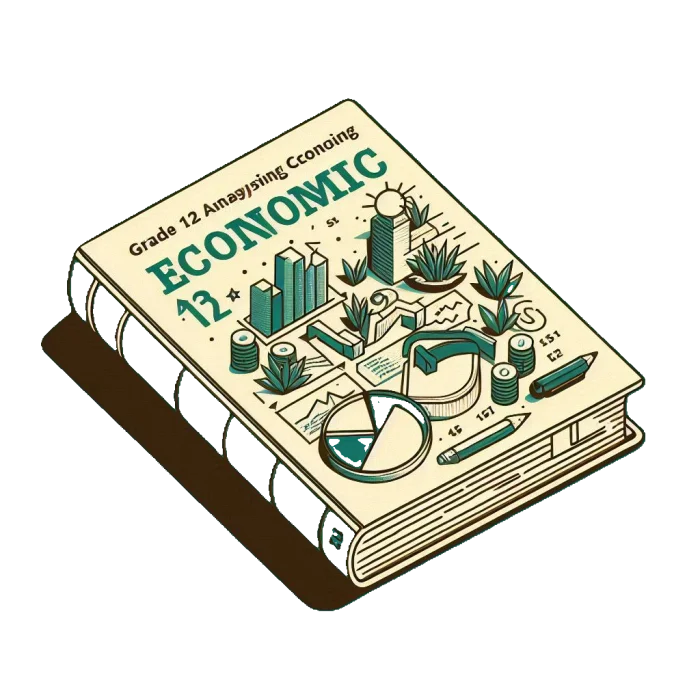This course examines current Canadian and international economic issues, developments, policies, and practices from diverse perspectives. Students will explore the decisions that individuals and institutions, including governments, make in response to economic issues such as globalization, trade agreements, economic inequalities, regulation, and public spending. Students will apply the concepts of economic thinking and the economic inquiry process, as well as economic models and theories, to investigate, and develop informed opinions about, economic trade-offs, growth, and sustainability and related economic issues.
Prerequisite: Any university or university/college preparation course in Canadian and world studies, English, or social sciences and humanities
Type:University Preparation
Credit Value:1.0
Curriculum Policy:
Canadian and World Studies, The Ontario Curriculum, Grades 11 and 12, 2015 (Revised)
A.ECONOMIC INQUIRY AND SKILL DEVELOPMENT
A1. Economic Inquiry: use the economic inquiry process and the concepts of economic thinking when investigating current Canadian and international economic issues;
A2. Developing Transferable Skills: apply in everyday contexts skills developed through economic investigation, and identify various careers in which a background in economics might be an asset.
B. FUNDAMENTALS OF ECONOMICS
B1. Scarcity and Choice: demonstrate an understanding of the significance of the concept of scarcity and how it influences economic choices and decisions of various economic stakeholders (FOCUS ON: Economic Significance; Stability and Variability)
B2. Supply and Demand Models: demonstrate an understanding of supply and demand models, including how to apply these models, and of factors that affect supply and demand (FOCUS ON: Cause and Effect; Stability and Variability)
B3. Growth and Sustainability: analyse aspects of economic growth/development, including its costs, benefits, and sustainability (FOCUS ON: Cause and Effect; Economic Perspective)
B4. Economic Thought and Decision Making: analyse how economic and political ideas and various sociocultural factors affect economic decision making (FOCUS ON: Economic Significance; Economic Perspective)
C. FIRMS, MARKETS, AND ECONOMIC STAKEHOLDERS
C1. The Firm and Market Structures: demonstrate an understanding of markets and theories of the firm (FOCUS ON: Cause and Effect; Stability and Variability)
C2. Economic Trade-Offs and Decisions: analyse economic trade-offs from the perspective of different stakeholders, including those in different countries, and how trade-offs influence economic decisions (FOCUS ON: Economic Significance; Economic Perspective)
C3. The Role of Government in Redressing Imbalance: explain ways in which governments, both in Canada and internationally, intervene in the economy to help address social needs and economic imbalances (FOCUS ON: Stability and Variability; Economic Perspective)
D. MACROECONOMICS
D1. Macroeconomic Models and Measures: demonstrate an understanding of various macroeconomic models and measures, including indicators used to measure economic inequalities, and assess their usefulness (FOCUS ON: Stability and Variability; Economic Perspective)
D2. Fiscal Policy: demonstrate an understanding of fiscal policy in Canada, including how it is shaped and its impact (FOCUS ON: Economic Significance; Cause and Effect)
D3. Monetary Policy: analyse various aspects of monetary policy in Canada and their impact on the economy (FOCUS ON: Cause and Effect; Economic Perspective)
E.GLOBAL INTERDEPENDENCE AND INEQUALITIES
E1. Theories and Models of International Trade: analyse various theories, models, and issues relating to international trade (FOCUS ON: Economic Significance; Stability and Variability)
E2. International Economic Developments: analyse the impact of some key international economic events and developments as well as various responses to them (FOCUS ON: Stability and Variability; Economic Perspective)
E3. International Economic Power and Inequality: explain the main causes and effects of global economic disparities and assess the effectiveness of responses to these disparities (FOCUS ON: Cause and Effect; Economic Perspective)

